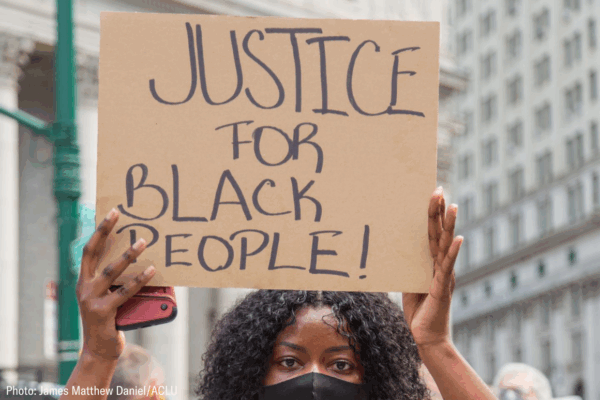What comes to mind when you hear the words: criminal legal system, prison, and mass incarceration? Do your thoughts immediately turn to images of vast numbers of Black and Brown incarcerated men? Do you attribute their incarceration solely to criminal activity that led to their legal trouble? Likely, all these things come to mind. And, it is true that men, specifically Black men, are particularly likely to be caught up in our criminal legal system that emphasizes punishment over prevention or even rehabilitation.
At the same time, the tendency to focus on the injustices faced by Black men ignores another reality. Since the early 1980s, women have emerged as the fastest-growing population held in jails and prisons in the United States. The Sentencing Project reports that “between 1980 and 2017, the number of incarcerated women increased by more than 750%.” Other findings show that racial disparities also exist among women -- women of color are imprisoned at twice the rate of white women.
In order to support a decline in the imprisonment of women, we must take a closer look at the nature of women’s involvement in the criminal legal system.
The lack of conversation concerning women in the criminal legal system shows an unwillingness to reform parts of society that push women into the system. In the 2018 report “Women in the Criminal Legal System: Pathways to Incarceration in Virginia,” the ACLU of Virginia pointed out many vehicles that lead to imprisonment for women in Virginia such as substance abuse, poverty, the school-to-prison pipeline, criminalization of LGBTQ people, trauma and victimization, and mental health conditions. Women’s entry to the criminal legal system most often relates to a deeper social problem. Reducing the number of women entering our prisons and jails requires us to engage in intentional efforts to increase economic security, support the creation and proper funding of mental and emotional health resources, and support youth and victims of trauma and abuse, not greater efforts to prosecute our way out of these social problems.
The ACLU of Virginia is an advocate for equitable criminal legal reform that dismantles laws that heavily criminalize Black and Brown people. During the 2020 Virginia General Assembly, the ACLU of Virginia worked with community partners to urge lawmakers to make changes in the system that has led to over-policing and over-incarceration of Black and Brown people. Unfortunately, legislators chose to make only minor changes that did nothing to address racial and gender-based disparities in either policing or Virginia incarceration rates.
Women report economic need as the main reason for crime, which is more than twice as often as men. Studies show that increasing the dollar amount that triggers a felony charge would not have an impact on overall property crime and larceny rates but would help reduce women’s entry into the criminal legal system. A bill passed earlier this year raised the felony larceny threshold from $500 to $1,000. Despite this increase, Virginia remains behind the national average, enabling the state to continue to incarcerate more people who struggle financially.
In addition, legislators failed to get rid of a law that turns three small thefts (e.g., shoplifting on three different occasions) into a felony, By keeping this law women convicted of theft three times will continue to become felons without consideration of the circumstances of the incidents or the total value of the items stolen. For example, a struggling mother who steals baby formula three separate times will be convicted of a felony, incarcerated, and exposed to hundreds of harsh consequences outside of the legal system, including losing her right to vote. Ask yourself: is it fair for a woman to lose her right to vote for only wanting to feed their child?
Dismantling the structures, policies and laws that have caused the increased incarceration of women will require equitable reform, beginning with increasing the threshold dollar amount that triggers a felony charge and removing the law that turns three small thefts into a felony. In order to support a decline in the imprisonment of women, we must take a closer look at the nature of women’s involvement in the criminal legal system. Doing so will allow lawmakers to make changes in our system that has entrapped women for too long.
The magnitude of these changes must not discourage us. The continued ignorance of these troubling realities will only continue to fail Virginian women. No longer should we wait until women are gripped by the claws of the criminal legal system, but take action before their backs are pressed against trying walls. As is the case with how we define crime generally, to reduce the number of women in our jails and prisons, we must disinvest from punishment and reinvest in prevention and treatment. We must understand that a key “root cause of crime” is what we choose to call a crime and take affirmative steps to alter the choices we have made that serve only to turn women trying to feed their families or deal with their addictions into criminals.

